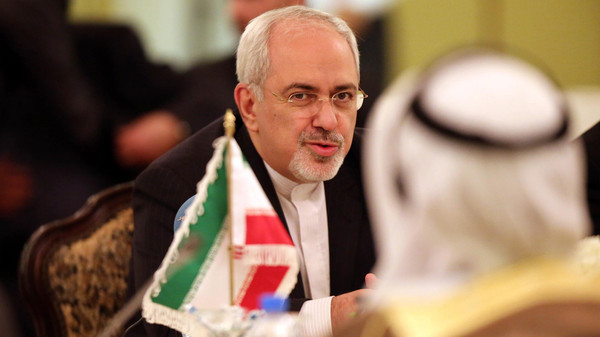Historically, conflicts between the Safavids and the Ottomans—the peak of which was seen in Basra—have created a sea of distrust and suspicion between the two sides that has only deepened over the centuries, easing at times and flaring up at others. Today, the two banks of the Gulf clearly reflect these age-old Sunni–Shi’ite tensions that have torn apart the fabric of Muslim societies. In particular, the Safavid state’s desire for control and dominance has caused ideological disagreement within the Muslim world.
Regardless, anyone who is following what is happening in the region does not need a crystal ball to see what Iran is doing nor to gauge the scope of its ambitions. On the one hand, Iran wants to divert attention from its domestic problems; on the other, it wants to buy time for its nuclear program.
Of course, Iran is afraid of “regime change” because it believes its government is not seen as legitimate by the West. It sees nuclear deterrence as a chance to ensure its survival and preserve the regime created by the 1979 revolution. We must recognize that Tehran has perfected the art of procrastination and has not yet proved that its nuclear program is solely for peaceful purposes. However, those keeping a close eye on the development of its nuclear program will note that it has become a mystery that defies logic. Iran insists its nuclear activities are intended solely for peaceful purposes. Naturally, we must ask: why then does Iran continue to mislead inspectors from the International Atomic Energy Agency? Why doesn’t it open its doors to them to confirm that the program is consistent with the terms of the Nuclear Non-Proliferation Treaty?
The Gulf Cooperation Council countries expressed their concern with Iran’s nuclear program, and they were surprised to find their voices marginalized and their regional role overlooked. They did not hide their worries and anxieties about the possibility of Iran and the P5+1 group (the five permanent members of the UN Security Council, plus Germany) reaching a settlement that may come at the expense of the Gulf’s stability and regional security. Prince Saud Al-Faisal, the Foreign Minister of Saudi Arabia, has already confirmed that any agreement would not be accepted. Because the Iranian nuclear issue is a regional affair, Gulf states feel they have the right to join negotiations, to review the details of the discussions, and reject any arrangements between the parties that may negatively affect their strategic interests. This issue, with respect to both its technical and political elements, is regional in nature.
The negotiations with Iran have taken a long time, and still continue to travel in circles. This is exemplified by a number of key issues, such as uranium enrichment, the number of centrifuges, the Arak reactor, the underground Fordow site, and international monitoring, have yet to be resolved fully. It is well-known that the Iranian negotiators do not deal with the nuclear negotiations in isolation; they do not go to Geneva or Vienna without exploiting their leverage on the nuclear issue, using it as a bargaining chip in all other matters.
Relations between Tehran and the United States have undergone dramatic shifts in recent years. It has become clear that US President Barack Obama’s capitulatory policy in the region has negatively affected stability. Tehran has interpreted US hesitation and indecisiveness as weakness. It sees America as lacking influence. At the same time, Russia’s polarizing tone has encouraged Iranians to put their eggs in Moscow’s basket, especially given the debate around the issue of acceptable levels of uranium enrichment in Iran and the European Union’s position on it.
However, the ball remains in Iran’s court. Neighboring countries want a Weapons of Mass Destruction-free zone and, to that end, have called for Security Council Resolution 687 of 1991 to be implemented. The Gulf States do not need a non-Arab regional power to achieve regional balance with Israel. A nuclear Iran would complicate the problem not solve it. It would contribute to an increase in nuclear weapons in the region, as well as environmental risks if radiation leaks occurred.
Iran’s problem is that it is dealing with regional issues based on a sectarian vision and not from the perspective of a state. Therefore, it needs objective self-criticism in order to save itself and the region from the risks that surround it on all sides. There is no longer any room for ambiguity; this is, rather, a strategic necessity to preserve Gulf stability and security. With respect to Tehran’s insistence on continuing its nuclear program, the Gulf states are not interested in Iranian assurances as much as they are interested in seeing Iran take serious action, starting with guaranteeing the peaceful nature of the program. Thus, Tehran must demonstrate good intentions and build trust with neighboring countries by opening the door to Gulf states to join the negotiations with the P5+1 group, and keep them informed of all details. After all, they are key stakeholders and neighbors. Without understanding this fact and its implications, it is impossible to foresee a safe and stable region. In fact, we may face the prospect of an entirely new political map being drawn.
The counterpoint to this article can be read here.
